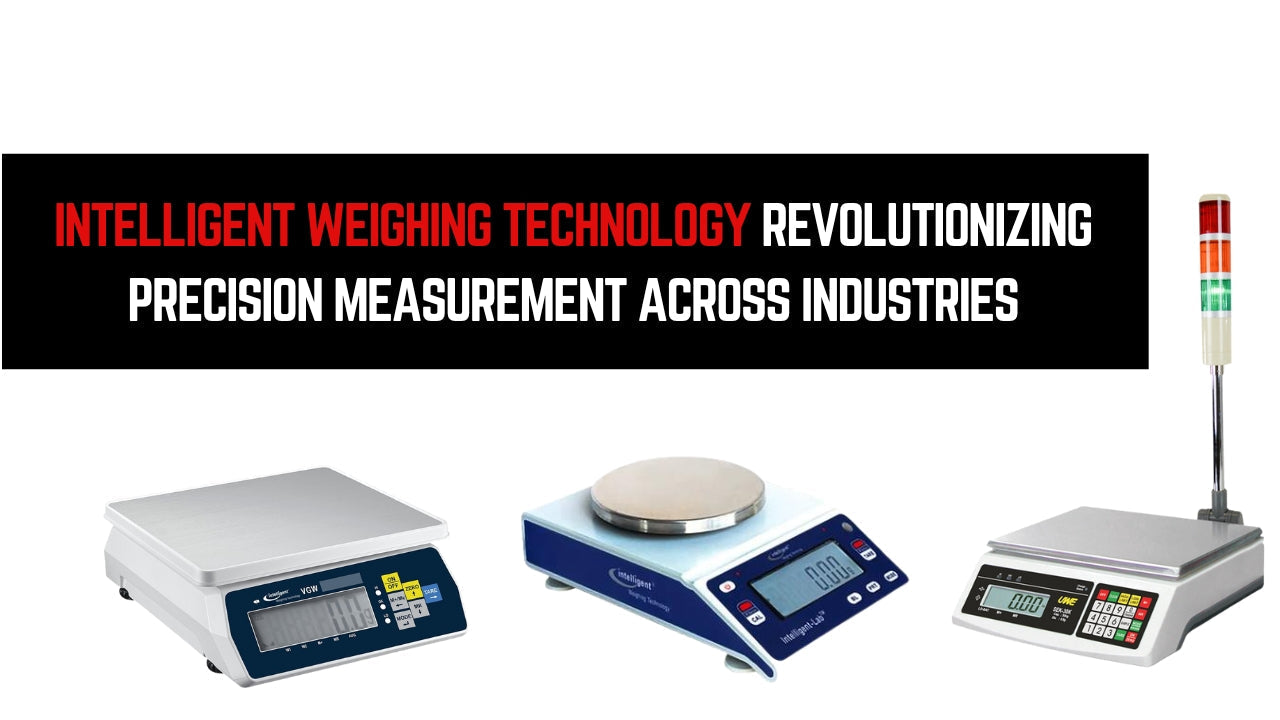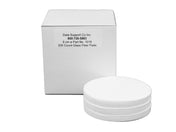Key Takeaways
-
Intelligent weighing technology combines precision sensors, digital processing, and advanced software to deliver accurate measurements with enhanced functionality
-
Major applications span pharmaceuticals, laboratories, manufacturing, and logistics with specialized equipment like checkweighers, counting scales, and moisture analyzers
-
Leading distributors like Intelligent Weighing Technology, Inc. operate from facilities exceeding 8,000 sq ft to ensure rapid delivery and calibration services
-
Modern weighing solutions integrate ISO 17025:2017 accredited services with over 80 years of combined industry experience
In today’s precision-driven industries, accurate measurement can mean the difference between regulatory compliance and costly failures. The evolution from simple mechanical scales to intelligent weighing technology has transformed how industries approach measurement and quality control. This revolutionary shift has created new opportunities for businesses seeking enhanced precision, automation, and data integration capabilities.
Modern intelligent weighing systems represent a cornerstone of industrial efficiency, combining traditional weighing fundamentals with cutting-edge digital intelligence. From pharmaceutical manufacturing to logistics operations, these sophisticated measurement solutions deliver the accuracy and reliability that contemporary business processes demand.
What is Intelligent Weighing Technology
Intelligent weighing technology encompasses advanced weighing systems that integrate precision load cells, sophisticated digital processors, and comprehensive software capabilities to deliver measurement solutions far beyond traditional scale functionality. These systems represent a fundamental evolution from mechanical balance designs, incorporating microprocessor-based controls that enable automation, data logging, and seamless integration with enterprise systems.
The core principles underlying intelligent weighing center on the integration of high-precision sensors with advanced digital processing capabilities. Load cells serve as the foundation of these systems, converting physical force into electrical signals with exceptional accuracy. These stainless steel or aluminum components utilize strain gauge technology to detect minute deformations under weight, translating mechanical stress into precise digital measurements.
Unlike conventional weighing systems that simply display weight values, intelligent weighing technology processes measurement data through sophisticated algorithms. These systems can perform automatic calibration, execute complex counting functions, and maintain comprehensive measurement records. The transition from mechanical to digital represents more than technological advancement—it fundamentally changes how businesses approach measurement processes.

Modern intelligent weighing solutions incorporate backlit lcd display technology, providing clear visibility across various operating conditions. These displays present not only weight measurements but also additional data including units conversion, statistical analysis, and process status information. The integration of rs 232 communication protocols enables seamless data transfer to external systems, supporting comprehensive process documentation and quality control initiatives.
Advanced Features and Capabilities
The capabilities of intelligent weighing technology extend far beyond simple weight measurement, incorporating sophisticated features designed to meet diverse industrial requirements. Precision measurement capabilities form the foundation of these systems, with calibrated, precision-checked balances delivering accuracy levels previously achievable only in specialized laboratory environments.
Integrated checkweighing functions represent a significant advancement in quality control applications. These systems automatically compare measured weights against predetermined specifications, triggering alerts or process controls when measurements fall outside acceptable ranges. This real-time monitoring capability ensures consistent product quality while reducing the potential for human error in manufacturing processes.
Counting scale technology transforms inventory management and parts counting applications through intelligent algorithms that calculate piece quantities based on individual item weights. These systems can store multiple product references, enabling rapid switching between different counting applications. The precision of modern counting scales allows accurate determination of small component quantities, supporting lean manufacturing initiatives and just-in-time inventory practices.
Moisture analysis integration provides simultaneous weight and moisture content measurements, essential for material testing and quality assurance in food processing, pharmaceutical manufacturing, and chemical industries. These integrated solutions eliminate the need for separate testing equipment while ensuring comprehensive material characterization.
Hanging scale solutions address specialized weighing requirements where traditional platform scales prove impractical. These portable systems maintain the precision and connectivity features of stationary intelligent weighing equipment while providing flexibility for field measurements and mobile applications.
Data connectivity capabilities distinguish Intelligent weighing technology from conventional measurement equipment. Modern systems support wireless communication protocols, enabling real-time data transmission to manufacturing execution systems, enterprise resource planning software, and cloud-based analytics platforms. This connectivity supports predictive maintenance initiatives, process optimization, and comprehensive compliance documentation.

Industry Applications and Use Cases
Pharmaceutical manufacturing represents one of the most demanding applications for intelligent weighing technology, where precise dosing and comprehensive documentation requirements drive the need for advanced measurement solutions. High quality laboratory balances in pharmaceutical environments must deliver exceptional precision while maintaining complete traceability of all measurements. These systems support Good Manufacturing Practice (GMP) compliance through automated data logging and tamper-evident measurement records.
Laboratory environments utilize analytical balances with readability capabilities extending to fractional milligram measurements. These precision instruments incorporate electromagnetic force compensation technology, enabling measurements with exceptional stability and repeatability. Modern laboratory balances integrate seamlessly with laboratory information management systems, supporting comprehensive sample tracking and results documentation.
Manufacturing sectors implement intelligent scales throughout production processes, from raw material receiving to finished product packaging. These systems provide real-time weight verification, supporting statistical process control initiatives and ensuring consistent product quality. Integration with manufacturing execution systems enables automatic recipe adjustment and process optimization based on real-time measurement data.
Logistics and shipping operations depend on intelligent weighing for freight classification, shipping cost calculation, and regulatory compliance. Automated weighing systems in distribution centers process thousands of packages daily, providing accurate weight data for carrier systems while supporting damage prevention through weight verification protocols.
Mining industry applications require robust weighing solutions capable of operating in harsh environmental conditions while maintaining measurement accuracy. Intelligent weighing systems in mining operations support material handling optimization, inventory management, and process efficiency initiatives across various commodities and processing stages.
Specialized Equipment Categories
Laboratory balances represent the pinnacle of weighing precision, incorporating advanced features designed for analytical and research applications. These instruments typically offer precision ranges from 0.1 mg to 0.01 mg, with environmental compensation capabilities that adjust for temperature, humidity, and air pressure variations. Many laboratory balances include built-in calibration weights and automatic calibration routines, ensuring consistent measurement accuracy throughout extended operation periods.

Industrial scales are engineered for demanding production environments, featuring robust construction materials and protective enclosures that withstand exposure to dust, moisture, and temperature extremes. These systems typically incorporate larger capacity ranges while maintaining appropriate precision for industrial applications. Many industrial scales include trade-approved certifications, enabling their use in commercial transactions and regulatory compliance applications.
Portable and hanging scales provide measurement flexibility for applications requiring mobility or unconventional weighing orientations. These systems maintain the intelligence and connectivity features of stationary equipment while offering battery operation and wireless communication capabilities. Hanging scales prove particularly valuable in aerospace, marine, and construction applications where traditional platform weighing proves impractical.
Automated weighing systems address high-volume processing requirements through integration with conveyor systems, robotic handling equipment, and automated packaging lines. These solutions minimize human intervention while maximizing throughput, supporting continuous manufacturing processes and reducing labor costs associated with manual weighing operations.
Quality Standards and Certifications
Industry-specific compliance standards address unique requirements in pharmaceutical, food processing, and other regulated sectors. These standards often reference specific measurement accuracy requirements, documentation protocols, and validation procedures. Intelligent weighing systems designed for regulated industries typically incorporate features specifically addressing these compliance requirements.
Quality assurance protocols ensure precision-checked balances meet manufacturer specifications throughout their operational life. These protocols include incoming inspection procedures, calibration verification, and performance monitoring systems. Regular quality assessments support consistent measurement accuracy while identifying potential equipment issues before they impact operations.
Certification processes for weighing equipment used in legal-for-trade applications involve rigorous testing and approval procedures. These certifications ensure measurement accuracy meets commercial transaction requirements while providing legal protection for users engaged in trade applications. Legal-for-trade certifications often include capacity limitations, environmental specifications, and usage restrictions.
Market Trends and Future Developments
Integration of IoT connectivity represents a transformative trend in intelligent weighing technology, enabling comprehensive remote monitoring and predictive maintenance capabilities. Connected weighing systems transmit operational data to cloud-based platforms, supporting real-time performance monitoring and predictive analytics. This connectivity enables proactive maintenance scheduling while providing comprehensive operational insights across distributed weighing networks.
Artificial intelligence applications are expanding throughout intelligent weighing systems, enabling automated decision-making based on measurement patterns and historical data. AI algorithms can detect measurement anomalies, optimize calibration schedules, and recommend process improvements based on weight data analysis. These capabilities support autonomous operation while reducing the need for human intervention in routine weighing processes.

Enhanced data analytics capabilities transform weight measurements into actionable business intelligence, supporting process optimization and quality improvement initiatives. Advanced analytics platforms can identify trends in measurement data, correlate weighing results with process parameters, and recommend operational adjustments. These capabilities enable continuous improvement while supporting lean manufacturing initiatives.
Wireless communication protocols continue expanding throughout intelligent weighing systems, eliminating the complexity and cost associated with hardwired connections. Modern wireless protocols provide secure, reliable data transmission while supporting mobile and portable weighing applications. Wireless connectivity enables flexible equipment placement while simplifying integration with existing systems.
Sustainability initiatives are driving development of energy-efficient weighing solutions, incorporating low-power components and renewable energy capabilities. These developments address environmental concerns while reducing operational costs associated with power consumption. Energy-efficient designs prove particularly valuable in remote installations and portable applications where power availability may be limited.
The complete range of intelligent weighing products continues expanding to address specialized application requirements across diverse industries. Manufacturers are developing customized solutions for specific industry needs while maintaining standardized components for cost efficiency. This trend supports comprehensive weighing solutions while ensuring compatibility across different application requirements.
Frequently Asked Questions
What makes weighing technology “intelligent” compared to traditional scales?
Intelligent weighing technology incorporates digital processors, advanced software algorithms, and connectivity features that enable automated data processing, real-time analysis, and integration with other systems , whereas traditional scales only provide basic weight measurements. These systems can perform automatic calibration, maintain measurement records, and communicate with enterprise software platforms.
How often should intelligent weighing equipment be calibrated?
Calibration frequency depends on usage intensity and accuracy requirements, but most pharmaceutical and laboratory applications require calibration every 3-12 months, while industrial applications may need quarterly or annual calibration based on regulatory requirements. High-precision analytical balances may require more frequent calibration, particularly in critical applications where measurement accuracy directly impacts product quality.
Can intelligent weighing systems integrate with existing manufacturing equipment?
Yes, modern intelligent weighing systems are designed with standard communication protocols and APIs that allow seamless integration with manufacturing execution systems (MES), enterprise resource planning (ERP) software, and automated production lines. These systems typically support multiple communication interfaces including Ethernet, serial communication, and wireless protocols.
What are the key factors to consider when selecting an intelligent weighing solution?
Critical factors include required precision level, environmental conditions, integration capabilities, regulatory compliance requirements, capacity needs, and ongoing service support availability from authorized distributors. Consider also the total cost of ownership including calibration services, maintenance requirements, and software licensing costs.
How do moisture analyzers enhance intelligent weighing capabilities?
Moisture analyzers integrated with intelligent weighing technology provide simultaneous weight and moisture content measurements, enabling comprehensive material analysis for quality control, process optimization, and compliance with industry standards for moisture-sensitive products. This integration eliminates the need for separate testing equipment while ensuring complete material characterization in a single measurement process.


